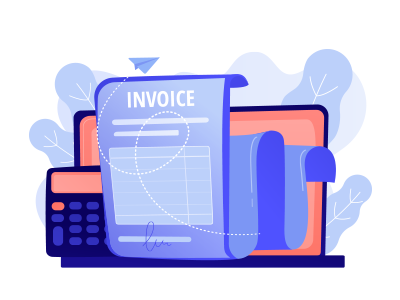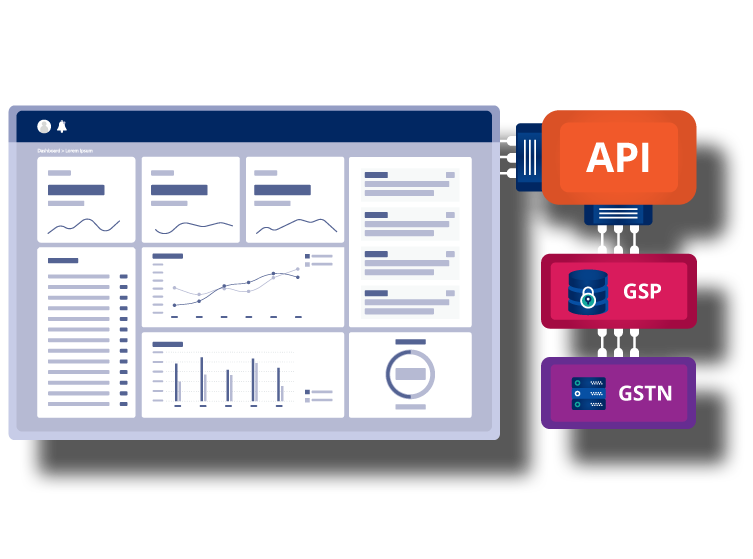GST Accounting is the backbone of every organisation and accounting starts with book keeping.
Organisations spend huge money on accounting department and hire efficient personnel, so that accurate books can be maintained.
Maintenance of books is prominent as it shows clear picture of every aspect of business. May it be profit, loss, revenue, expenditure, own fund, owed fund or anything.
One of the most important area out of these is taxation. And GST return filing is a very crucial aspect under taxation.
Why??
Because GST is entangled with all the transactions taking place in business.
Therefore, person appointed at various levels like preparing invoices, passing journal entries, finalising accounts, paying tax, auditing, etc. must have appropriate knowledge of GST accounting.
We know that GST accounting is a wider concept and required detailed knowledge.
In this article, I am going to cover compliances and best practices to maintain accounts and records under GST accounting.
GST accouting & Compliances
GST department on the basis of such returns, does scrutiny on verify the tax paid by the taxpayer.
For this, a taxpayer is required to file accurate return and pay appropriate tax as department will verify based on documents and not physical controls.
Chapter VIII- Accounts and Records (Section 35 and 36) of CGST Act specifies accounts and records required to be maintained by the taxpayer.

How to manage GST accouiting?
Section-35 (1)
Section-35 (1): Maintenance of Books of Account
As per this section, every registered person, at its principal place of business as mentioned in its GST registration certificate, is required to maintain true and correct account of:
In case there are multiple places of business is mentioned in GST registration certificate, books relating to each place shall be maintained at such place.
For example
- X Ltd has 3 Place of business
- “P” Principal Place of business
- “Q” Additional Place of Business
- “R” Additional Place of business
In this situation X ltd has to maintain details of P at P, Q at Q and R at R.
Registered person may maintain data in electronic form as per his discretion. However, data maintenance in electronic form is not mandatory.
Rule 56(1), (3), (5) and (6)
Additional Accounts, if applicable
Rule 56(2) and (4)
Details to be maintained by suppliers (other than composition supplier)
Rule 56(11)
Details to be maintained by agents
Rule 56(12)
Details to be maintained by manufacturer
Rule 56(13)
Details to be maintained by Service Providers:
Rule 56(14)
Work Contractor:

GST accounting: Section 35(2) read with rule 58
Owner/ Operator of Godown or warehouse and Transporters
Every owner/ operator of godown or warehouse, and Every transporter
Whether registered under GST or not, shall maintain detailed records of consigner, consignee and other relevant details of goods.
If any of the party mentioned above is not registered, then should electronically apply for a UNIQUE REGISTRATION NUMBER on GST portal.
Details to be maintained by TRANSPORTER:
A transporter has to maintain details of goods transported, delivered and stored to consigner and from consignee
Owner/ Operator of Warehouse/ Godown
Rule 56(17)
Custodian/ Clearing and forwarding agent Shall maintain detail of goods in custody and shall produce such details as and when required to the proper officer.
Section 35 (3)
Commissioner may notify a class of taxable persons to maintain any additional account or document as may be required.
Section 35 (4)
When commissioner is of the opinion that any class of person is not in the position to maintain books as per provision of this section, he may record reason in writing, permit to maintain such accounts as may be prescribed.

GST accouting: How to maintain accounts and records?
Section 35(1) read with Rule 56 (7) , (8), (9), (15), (16), (18) and (57)
In electronic form
- Document stored electronically must be authenticated by digital signature.
- Proper back up shall be maintained.
- When asked to produce by proper officer, the registered person shall produce the data in hard copy or electronically readable format.
- When demanded, a registered person shall provide information, files, password to the proper officer.
Manipulation of entries
- No Entries shall be erased or deleted.
- Any incorrect entry shall be scored out under attestation and then correct entry is to be recorded.
- Log of every edited or deleted entry shall be maintained.
GST accounting: Audit of accounts
Section 35 (5) read with Section 44(2) and Rule 80
Every registered person shall get his accounts audited by a Chartered Accountant or Cost Accountant if his aggregate turnover during the Financial Year exceeds Rs. 2 crores.
(In case of Central Government, State Government, Local Authority shall get their accounts audited from Comptroller and auditor general of India)
A registered person shall submit annual return along with:
- Audited Accounts
- Reconciliation statement
- Reconciliation statement will reconcile the value of supplies declared in returns with audited Financial statements.
Section 35 (6)
Failure to maintain Books of Accounts
- If Books of accounts are not properly maintained, the proper officer shall determine amount of tax payable on goods or services not accounted for, as if such goods or services are supplied.
- For this, section 73 and 74 shall be mutatis mutandis apply.
Section-36
Period to maintain Books
- Books shall be maintained for until expiry of 72 months from due date of furnishing annual return
- However, any party to an appeal, Revision, Investigation shall maintain books up to at least One year from disposal of such appeal, revision or investigation.
Best Practices to Maintain Accounts and Records for GST accouting
1
Follow Standards and Schedules
2
Update Regularly
Accounting is not a temporary job. It is a routine for business. An entrepreneur has to ensure that his transactions are properly getting recorded as and when they take place.
Moreover, GST is inclusive in almost every transaction and the taxpayer has to file return and pay tax monthly or quarterly, as the case may be.
3
Self-Assessment and Audit:
GST requires self-assessment of accounts and tax. Taxpayer has to self-assess his tax and find out his tax liability to government. So, he should to do it regularly so that no error takes place.
Hope this article was helpful to you for better understanding of Accounting and Book keeping under GST.

File your GST returns in minutes, not hours!
Get Live Demo and experience the simplicity by yourself.

